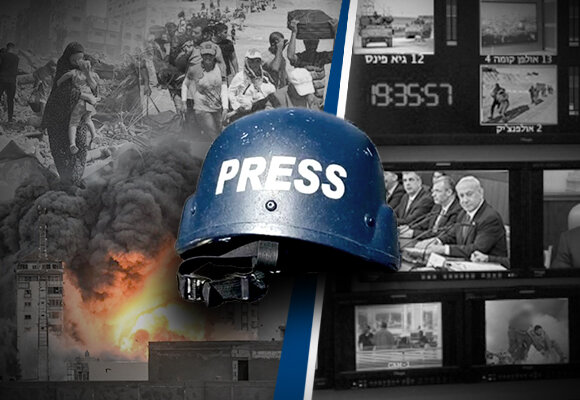Tehran – The murder of journalists in Gaza has been highlighted in a recent report from the Palestinian Chronicle detailing the deaths of five more journalists in Israeli airstrikes, reaching an unprecedented, surprising scale, as highlighted in a recent report from the Palestinian Chronicle, which brought at at least 219 Palestinian journalists and media workers in May 2025.
This tragedy is not an isolated incident, but part of a sustained pattern since October 7, 2023, and Gaza has become the most deadly place for journalists in modern history, winning the sacrifices of both World War, Vietnam, Yugoslavia and Afghanistan.
The systematic targeting and killing of journalists in Gaza is not only a humanitarian catastrophe, but a direct attack on global press freedom and information rights.
Attacks are systematic and targeted
The leading press freedom groups, including the Journalists (CPJ), Borderless Reporters (RSF), and the Committee to Protect International Federation of Journalists (IFJ), have compiled extensive evidence that targeting Gaza journalists is intentional and not accidental.
Many reporters died in direct attacks in marked press vehicles or in homes. The entire media office and the entire communications hub have been wiped out, severely limiting the ability to report on the ground in Gaza. The CPJ points out that around 10% of Gaza-based journalists have been killed.
But despite raising international concerns, Israel’s justification has little proven justification that these journalists are linked to extremist groups.
As CPJ’s Sherif Mansour stated, “The Israeli army killed more journalists in ten weeks than any other army or organization has. As all journalists were killed, the war becomes documented and difficult to understand.”
International response
The international response includes criticism of voices from the United Nations and major human rights groups. UN Secretary-General Antonio Guterres, along with the office of the High Commissioner for Human Rights (OHCHR), has called the casualties of the death of a Gaza journalist as “unprecedented” in modern times.
Similarly, RSF and IFJ have filed cases with the International Criminal Court (ICC). In May 2024, ICC prosecutors sought a warrant for an arrest against a senior Israeli official on suspicion of war crimes.
More than 30 international news outlets publicly demand strong protections for journalists and are seeking independent investigations. Humanitarian groups continue to provide emergency supplies to surviving reporters in Gaza, but the challenges remain severe.
Israeli restrictions on foreign journalists entering Gaza have made local reporters particularly vulnerable and isolated from outside support.
Journalism and its impact on society
Every journalist killed is a loss of witnesses, stories and truth. Systematic targeting of media workers has created nearly identical information blackouts in Gaza, making it nearly impossible for the world to know the full extent of a humanitarian catastrophe.
As CPJ’s Carlos Martinez de la Serna emphasized, “Every time a journalist is forced to go to exile, every time he loses a piece of truth.
The destruction of Gaza’s media infrastructure and the loss of so many journalists have weakened civil society, reduced government accountability, and left future generations without access to independent local journalism.
Power blackouts also disrupt humanitarian coordination and emergency response, putting civilian lives at risk and deepens the crisis.
Conclusion
The incredible number of journalists killed in Gaza show a growing crisis, not just for freedom of the press, but for access to the truths of the world.
Reporters are intentionally targeted and silent, blocking the flow of direct information from the ground. What’s happening is not just a local tragedy, but a threat to journalism everywhere.
The near collapse of the Gaza media landscape stripped the conflict of transparency and civilians of important voices. This is more than a Warzone. It’s where the truth is buried.
This fatal pattern continues when the global community fails to demand justice and introduce protections to journalists.
Explaining the person in charge is not an option. it’s necessary. Because if the truth is silent here, it can be silenced anywhere.

